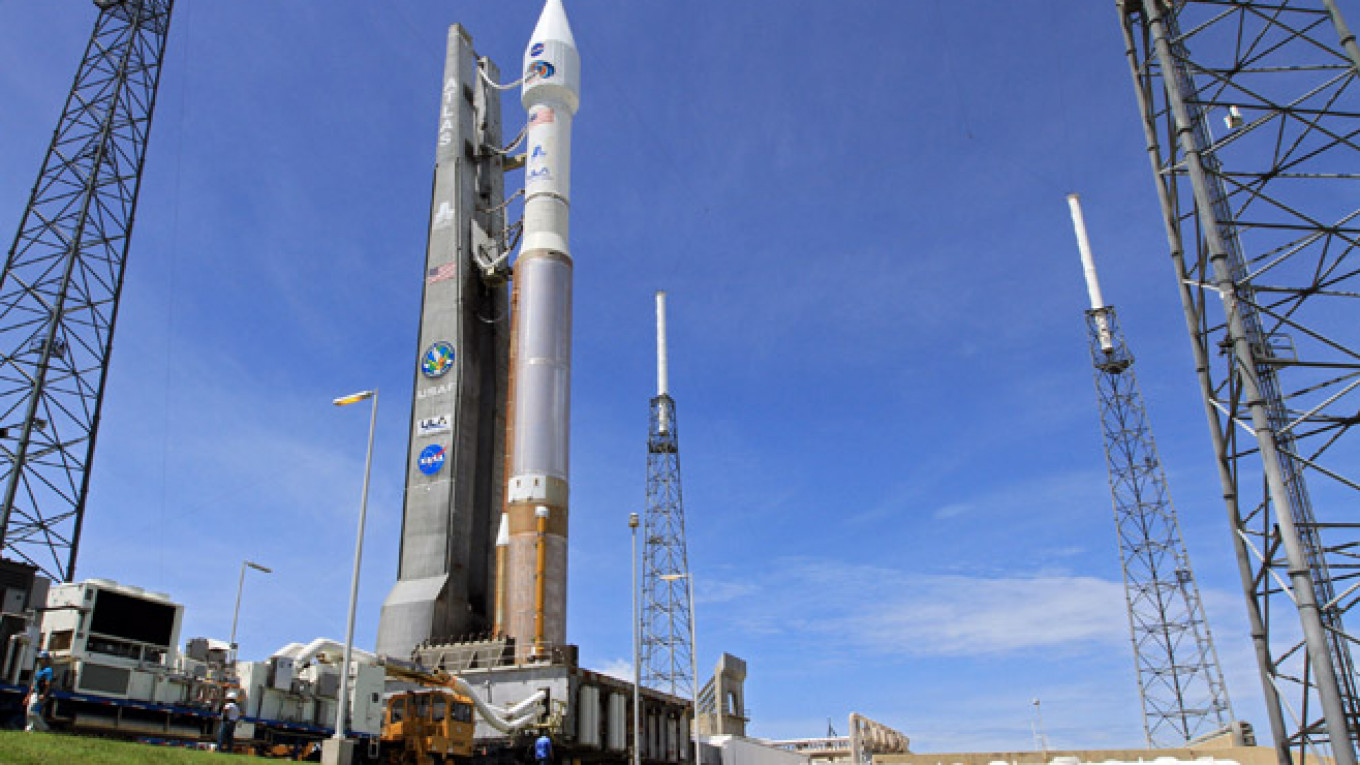Special report for MT
The U.S. Federal Claims Court has ended a short-lived ban on domestic firms purchasing the powerful and currently unrivaled RD-180, a Russian rocket engine used to propel vital U.S. military and intelligence satellites into space.
The court lifted the ban Thursday after hearing the opinions of the U.S. State, Treasury and Commerce departments that the sales of the RD-180 rocket engine — produced for export to United Launch Alliance, or ULA, a joint-venture between U.S. aerospace giants Lockheed Martin and Boeing — did not violate existing U.S. sanctions against Russia following the annexation of Crimea from Ukraine in March.
The injunction, filed two weeks ago, prohibited ULA from purchasing the RD-180 from Russia's NPO Energomash on the grounds that Energomash "is subject to the control of Deputy Prime Minister Dmitry Rogozin," who is among the senior Russian officials currently sanctioned by the U.S. government.
The injunction was filed two days after Space Exploration Technologies, or SpaceX, filed a complaints against the U.S. Air Force, which SpaceX CEO Elon Musk alleges had signed an unlawful contract with ULA to purchase 36 Atlas V rocket cores. Additionally, Musk suggested that the contract may have violated U.S. sanctions on Russia.
The U.S. government on Tuesday formally contested the allegation that the engine purchases violate U.S. sanctions against Rogozin and, at the request of the original court order, provided written opinions from the U.S. State, Treasury and Commerce departments that payments to NPO Energomash "would not directly or indirectly contravene" existing U.S. sanctions.
As such, "the U.S. respectfully requests that the Court dissolve its April 30, 2014 permanent injunction," says the request, published on Spacenews.com, adding that it "respectfully requests expedited consideration of this motion."
ULA condemned SpaceX's actions on Thursday, after the U.S. Federal Claims Court lifted the injunction, characterizing their allegations as “self serving, irresponsible” and adding that they “ have threatened the U.S.’s involvement with the International Space Station and other companies and projects working with Russian state entities,” a statement on the ULA website said Thursday.
The RD-180 is manufactured for export by Russia's NPO Energomash and is used to power the first stage of the Atlas V rocket — the workhorse of the U.S. launch fleet that is regularly called in to service to lob high-value national security payloads into space.
It is a dependency that has sparked waves of concern in U.S. government and aerospace circles, as the reliability of RD-180 supplies has come in to question amid heightened tensions between the U.S. and Russia.
The U.S. currently has two years worth of RD-180 engines stockpiled on U.S. soil in the event of a supply disruption.
The House Armed Services Committee is currently finishing work on the draft copy of the 2015 National Defense Authorization Act. The bill includes, among other things, $220 million granted to the Secretary of Defense for the development of a next-generation liquid rocket engine by 2019 — well beyond the time that the U.S. would exhaust its supply of Russian engines if the supply were cut off for any reason.
Contact the author at [email protected]
A Message from The Moscow Times:
Dear readers,
We are facing unprecedented challenges. Russia's Prosecutor General's Office has designated The Moscow Times as an "undesirable" organization, criminalizing our work and putting our staff at risk of prosecution. This follows our earlier unjust labeling as a "foreign agent."
These actions are direct attempts to silence independent journalism in Russia. The authorities claim our work "discredits the decisions of the Russian leadership." We see things differently: we strive to provide accurate, unbiased reporting on Russia.
We, the journalists of The Moscow Times, refuse to be silenced. But to continue our work, we need your help.
Your support, no matter how small, makes a world of difference. If you can, please support us monthly starting from just $2. It's quick to set up, and every contribution makes a significant impact.
By supporting The Moscow Times, you're defending open, independent journalism in the face of repression. Thank you for standing with us.
Remind me later.






